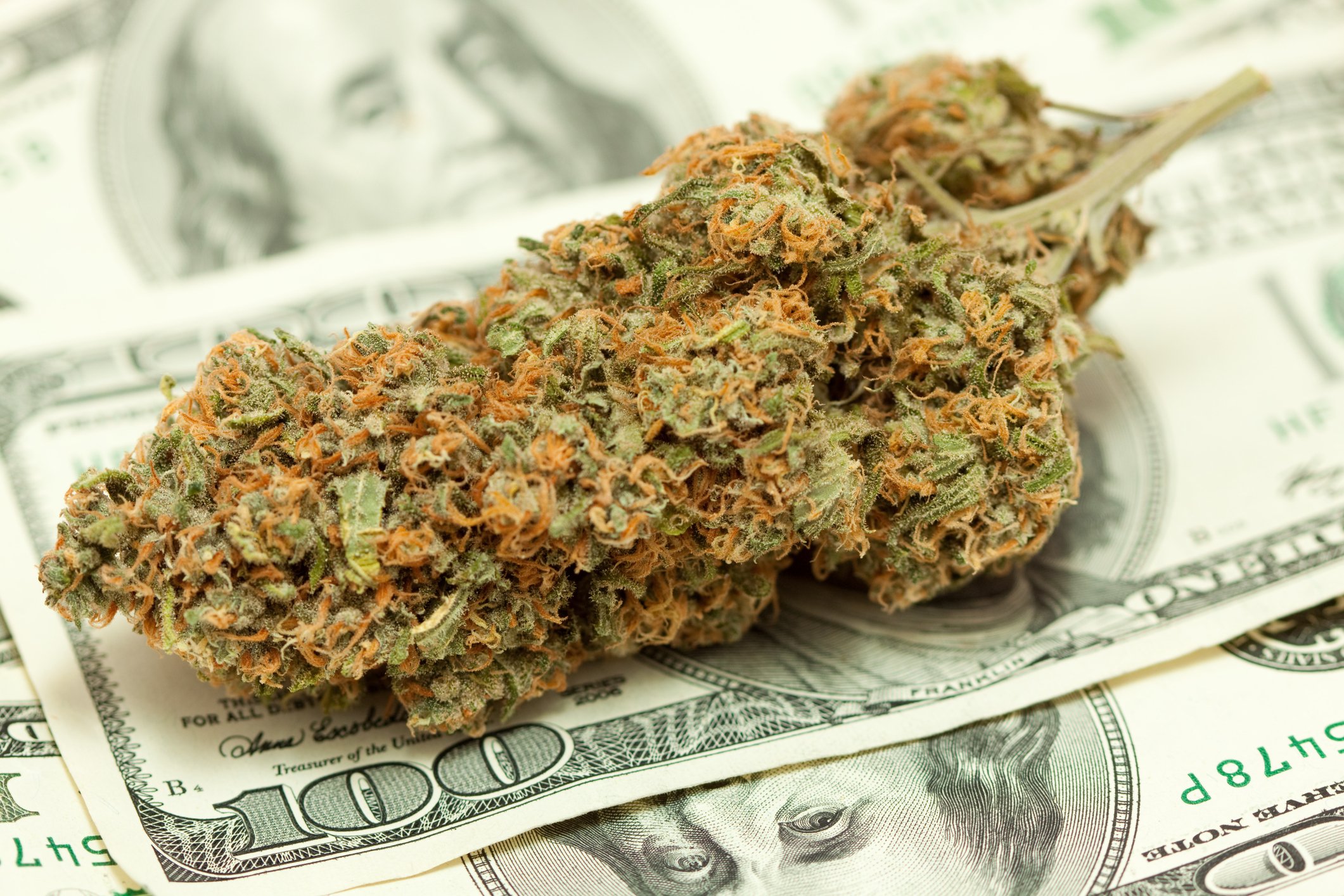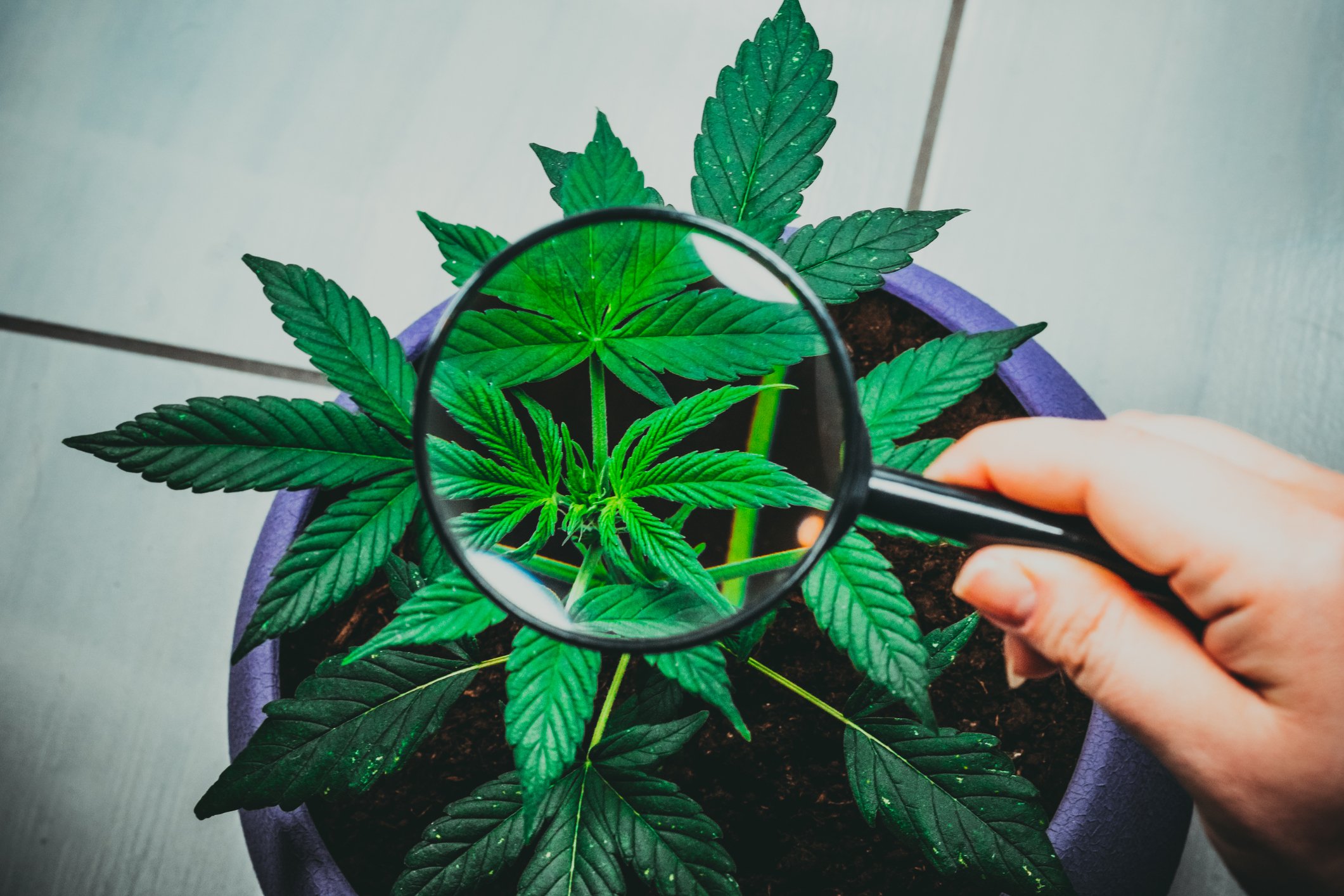The legal marijuana industry is on the verge of a major surge in revenue. In June, Canada passed the Cannabis Act and, in the process, became the first industrialized country in the world to legalize recreational marijuana. This should, in all likelihood, open the door to $5 billion in added annual sales once the industry is fully ramped up.
With sales figures these delectable, it's no surprise that a vast majority of marijuana stocks have seen their valuations inflate substantially over the past two-plus years. However, not all pot stocks have participated in this rally.

Image source: Getty Images.
This pot stock is down 85% in three years
Arizona-based Insys Therapeutics (INSY +0.00%), a specialty drug developer with a portfolio that's partially dependent on cannabis-like therapeutics, has been nothing short of a disaster. Shares of the company have plunged 85% since hitting an all-time high three years ago.
A lot of the negativity surrounding Insys involves its marketing and sales tactics for Subsys, a fentanyl-based sublingual spray approved by the Food and Drug Administration (FDA) to treat breakthrough cancer pain. Back in 2015, sales of Subsys hit roughly $330 million, and they'd more than tripled since 2013. In many respects, Insys looked to be the next hot thing on Wall Street. Then it all fell apart.
Since the end of 2015, allegations of wrongdoing and criminal charges have been filed against a handful of former executives for knowingly and willingly marketing Subsys at off-label indications, as well as paying doctors for speaking engagements (which they may not have done) in order to not tip off insurance companies and to encourage those doctors to continue prescribing the medication for off-label use. It's been estimated that up to 80% of Subsys' sales were off-label. As a result, Subsys has been in a tailspin, with the drug generating a little over $23 million in net revenue in the first quarter. On an extrapolated basis, Subsys isn't even a $100 million drug anymore.

Image source: Getty Images.
The FDA just pulled the rug out from under Insys
As though its ongoing legal issues and sales declines surrounding Subsys weren't enough, the company received disappointing news late last week when the FDA sent it a Complete Response Letter (CRL) as opposed to an approval for its buprenorphine sublingual spray as a treatment for moderate to severe acute pain. A CRL is essentially a rejection, with an outline from the FDA detailing the deficiencies that would need to be corrected prior to reconsideration for approval.
According to the CRL, efficacy isn't the issue. As noted, all three doses of the sublingual treatment provided a statistically significant improvement in the Summed Pain Intensity Difference relative to baseline over a period of 48 hours, when compared to the placebo, in the 322-patient phase 3 trial. The problem that led the FDA's advisory panel to recommend against approval in May, and that drove the FDA to follow the suggestion of its panel in this instance, are potential safety concerns with the product.
Were this a manufacturing or efficacy issue, the path forward for Insys' product would be pretty clear. However, safety concerns can be tough to hash out. Without expounding on the specific concerns in the press release, it may require additional clinical studies before another new drug application can be filed or the company could completely scrap the experimental drug.
If there is a silver lining here, it's that its buprenorphine sublingual spray would have been entering a very crowded market, and likely wouldn't have accounted for much in the way of annual sales. But with Subsys' sales sinking, any new approval would have helped provide validation to the company's ongoing transformation and bolstered its pipeline.

Image source: Getty Images.
If Insys' hope rests on Syndros, it's in deep trouble
But the biggest disappointment of all might just be the poor performance of the company's liquid dronabinol solution, Syndros, which was approved in July 2017 for the treatment of chemotherapy-induced nausea and vomiting (CINV), and for anorexia associated with AIDS. Dronabinol is a synthetic form of tetrahydrocannabinol (THC), the psychoactive component of the cannabis plant that gets you "high," and is why Insys is commonly referred to as a "marijuana stock."
When Syndros was first approved, Wall Street had been tossing around some healthy peak annual sales figures. Assuming Subsys stabilized around $60 million to $75 million in annual sales, Syndros was expected, at its peak, to perhaps bring Insys back to around $300 million in annual sales. After all, there are no other synthetic THC options on pharmacy shelves for CINV and anorexia associated with AIDS.
Unfortunately, uniqueness isn't winning Insys any brownie points with patients or physicians. Based on figures from its first-quarter operating results, the drug made a measly $637,000 in sales. What's more disturbing is that the $1.44 million in sales Syndros generated in five-plus months in 2017, following its July launch, is actually a quicker extrapolated sales pace than what we saw in Q1 2018. It's perhaps a bit premature to call Syndros a full-fledged flop, but it certainly has all of the hallmarks at the moment.

Image source: Getty Images.
What's next for Insys Therapeutics?
So, what's left for Insys Therapeutics and shareholders to lean on? Pretty much it's the company's pipeline, with which the company aims to file at least one new drug application each year.
The company has oral dronabinol solutions in development for infantile spasms (phase 3) and Prader-Willi syndrome (phase 2), as well as an inhalable dronabinol which is still in the developmental stage. It'll also be interesting to see how well the company's naloxone nasal spray for opioid overdose performs in phase 3, and its epinephrine nasal spray for anaphylactic reaction does in midstage trials.
Unfortunately for investors, the value proposition has been thrown out the window for the time being. There are potentially huge legal fees, fines, and/or sales restrictions that could be imposed as a result of the company's marketing of Subsys, and Syndros is already sputtering less than a year after its launch. Now, with its buprenorphine sublingual in limbo, the near-term future for the company looks poor, at best. While I've been hopeful for a turnaround in the past, I'd suggest keeping your distance until the new management team proves that it's got a handle on things.






